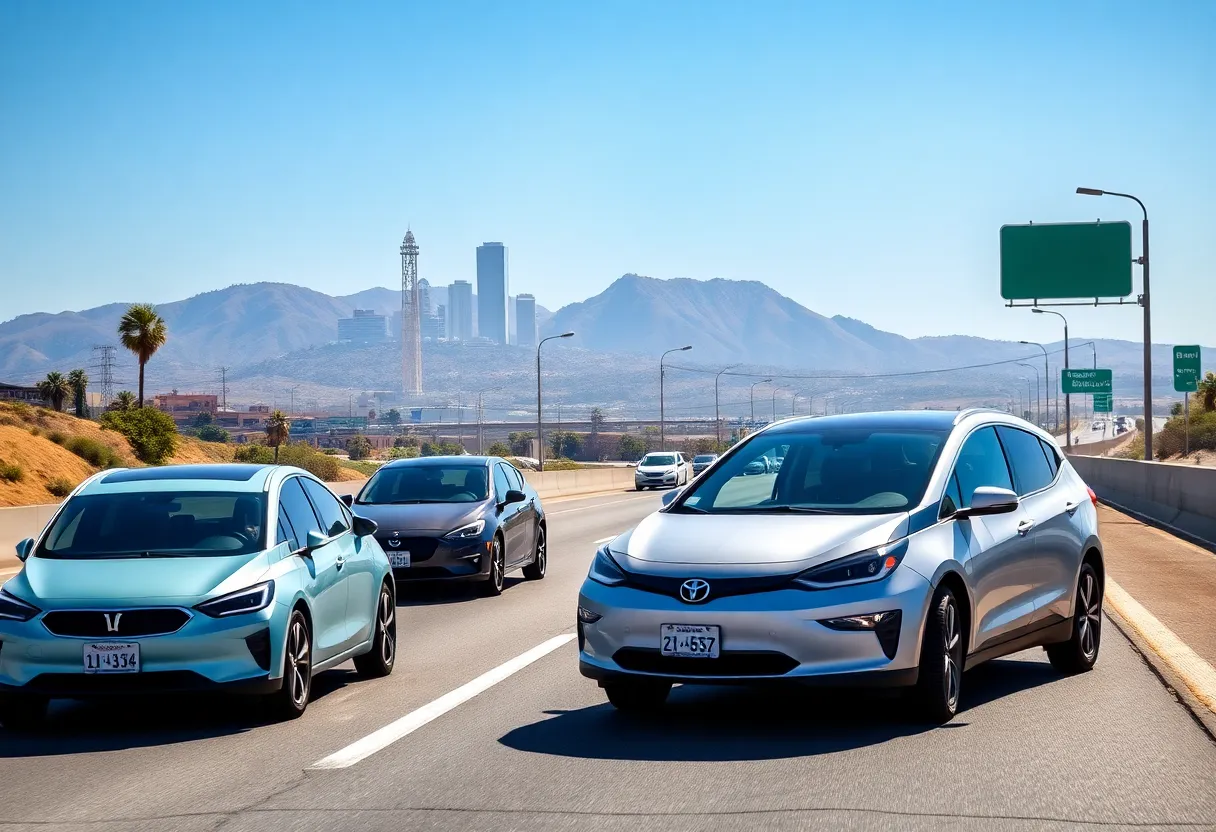News Summary
In a landmark vote, the US Senate has approved a resolution to repeal California’s 2035 ban on gasoline-powered vehicles, paving the way for potential legal battles. The vote, passed 51-44, is set to go to President Trump for approval, potentially undermining California’s initiative aimed at transitioning to electric vehicles. Governor Gavin Newsom criticized the decision, highlighting its implications for public health and environmental standards, particularly as California leads in zero-emission vehicle sales. The repeal poses risks to at least 11 states planning similar regulations, igniting a major debate over state versus federal environmental authority.
California – In a recent decision, the US Senate voted 51-44 to repeal California’s initiative to ban the sale of gasoline-powered cars by 2035. This significant legislative move now heads to President Donald Trump, who is expected to sign the repeal into law. The vote represents a response to the rollback of an Environmental Protection Agency (EPA) waiver granted under former President Joe Biden, which had allowed California to implement stricter vehicle emissions standards than federal guidelines.
California’s ambitious plan aimed to accelerate the transition to electric vehicles (EVs) and reduce greenhouse gas emissions in an effort to combat climate change. Prior to this vote, the state had held the authority to establish tougher environmental regulations than federal standards for the past 50 years. The Advanced Clean Cars II rule, now in jeopardy, mandated that by next year, 35% of all new vehicles sold at California dealerships be either zero-emission vehicles or plug-in hybrids. By 2035, California intended to prohibit the sale of any new gasoline-only vehicles entirely.
The defeat of this initiative could have wider implications, affecting at least 11 additional states that were poised to follow California’s lead. Collectively, these states account for roughly 40% of the U.S. auto market, positioning them as critical players in the future of automotive regulations. California’s zero-emission vehicle sales had already reached about 25% of all new car sales in the state for 2023 and 2024, indicating a rapid shift towards cleaner alternatives.
Governor Gavin Newsom expressed discontent over the Senate’s decision, warning it would potentially hinder the United States’ ability to compete with countries like China in vehicle technology. He characterized the move as a step towards “making America smoggy again,” arguing that it undermines public health and environmental protections that the state has fought hard to uphold. Only one Democrat, Senator Elissa Slotkin of Michigan, sided with Republicans in the vote, indicating a divided stance within the party on this matter.
The Senate’s approval of this resolution opens the door for potential legal battles, as California has signaled its intention to challenge the Congressional decision in court. The state considers the move to be unjust and unlawful, especially given its history of seeking legal waivers from the EPA to enforce its stringent emissions regulations, a process it has pursued over 100 times.
Moreover, the repeal may negate an estimated $13 billion in public health benefits associated with reduced air pollution, including predictions of preventing 1,200 premature deaths annually. Critics of this repeal, particularly Senate Democrats, assert that it threatens both state authority and environmental health, emphasizing the potential danger to public health monitoring and regulation capabilities.
Republicans defend their position by claiming that California’s tight regulations could harm the national auto industry, limit consumer choice, and strain the energy grid. This recent vote may set a precedent for future Congressional actions aimed at countering state-level regulations that seek to impose stringent environmental standards.
Additionally, other resolutions presented to block California’s clean-air standards for heavy-duty vehicles were also approved, amplifying concerns regarding the future of state environmental regulations.
In conclusion, the repeal of California’s gasoline car ban signals a pivotal moment in the ongoing debate over state versus federal environmental regulations. As potential legal actions loom, the nation watches closely to see how this conflict will evolve and its ramifications for not only California but for environmental policy across the United States.
Deeper Dive: News & Info About This Topic
- New York Times: Senate Republicans Vote on Electric Vehicles in California
- Wikipedia: Government Regulation of the Environment
- Los Angeles Times: Senate Votes to Overturn California Gas-Only Car Ban
- Google Search: California Gas Car Ban
- AP News: California Senate Moves on Vehicle Emissions
- Google Scholar: California Gasoline Car Ban
- Bloomberg: Senate Votes to End California Gas Car Ban
- Encyclopedia Britannica: Air Pollution
- The Center Square: California Gas Car Ban Repealed
- Google News: California Vehicle Emissions

Author: STAFF HERE COSTA MESA WRITER
The COSTA MESA STAFF WRITER represents the experienced team at HERECostaMesa.com, your go-to source for actionable local news and information in Costa Mesa, Orange County, and beyond. Specializing in "news you can use," we cover essential topics like product reviews for personal and business needs, local business directories, politics, real estate trends, neighborhood insights, and state news affecting the area—with deep expertise drawn from years of dedicated reporting and strong community input, including local press releases and business updates. We deliver top reporting on high-value events such as the OC Fair, Concerts in the Park, and Fish Fry. Our coverage extends to key organizations like the Costa Mesa Chamber of Commerce and Boys & Girls Clubs of Central Orange Coast, plus leading businesses in retail, fashion, and technology that power the local economy such as Vans, Experian, and South Coast Plaza. As part of the broader HERE network, including HEREAnaheim.com, HEREBeverlyHills.com, HERECoronado.com, HEREHollywood.com, HEREHuntingtonBeach.com, HERELongBeach.com, HERELosAngeles.com, HEREMissionViejo.com, HERESanDiego.com, and HERESantaAna.com, we provide comprehensive, credible insights into California's dynamic landscape.


